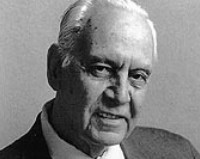Article/Document:
CNN's Interview With Peter Sturrock (Transcript)
CNN
original source | fair use notice
Summary: In the first independent review of UFO phenomena in more than 30 years, a nine-member group of scientists says physical evidence linked to some sightings deserves additional scientific study. The physicist who headed up that panel is Peter Sturrock
CNN Today
Sturrock: UFO Reports Deserve Additional Scientific Study
Aired June 29, 1998 - 1:19 p.m. ET
THIS IS A RUSH TRANSCRIPT. THIS COPY MAY NOT BE IN ITS FINAL
FORM AND MAY BE UPDATED.
_________________________________________________________
NATALIE ALLEN, CNN ANCHOR: Some scientists in the know about
UFOs are issuing a report that may heat up speculation about
this always-lively topic.
In the first independent review of UFO phenomena in more than 30
years, a nine-member group of scientists says physical evidence
linked to some sightings deserves additional scientific study.
The physicist who headed up that panel is Peter Sturrock, who
joins me now from Stanford, California.
Thanks for joining us, sir.
PETER STURROCK, STANFORD PHYSICIST: You're welcome.
ALLEN: Well, tell us about the sightings that you believe need
further examination?
STURROCK: Well, I'm not presenting my belief. I'm presenting the
assessment of a panel of scientist who met with a group of eight
investigators. The investigators were asked to present whatever
physical evidence they found in the course of their research.
And the only question asked of the panel was that, do you
believe that further study of this kind of case, this kind of
evidence, might eventually lead to answers to the problem of
understanding the cause or causes of UFO reports? And the panel
felt, yes, this would be a promising line of research for the
future.
ALLEN: So can you give us an example of a particular sighting
they may examine further?
STURROCK: Well, there were many examples given, ranging from
photographic evidence through radar, through ground traces. But
the panel, in particular, is interested in cases with more than
one kind of physical evidence. And one of those occurred in
France in 1981. It is, unfortunately, a single-witness case. But
the witness, who was working in his garden, heard a whistling
sound, saw a strange object land on his terrain and then leave.
In France, they have an official data collection and
organization, organized through the French space agency, CNES.
So the next day, the Jondomery (ph) (gendarmerie i.e., ed.) came
out and took photographs, took samples of the plants. A little
later, scientist from the space agency came out, took further
samples, further photographs, took soil samples, and took
samples of the vegetation, which were alfalfa plants. And they
found there were indentation in the soil that would have taken
about 1 ton to produce, and the vegetation has strange
biochemical changes, which could perhaps be caused by
micro-radiation; they didn't know what.
But here is one case with only a single witness and two kinds of
physical evidence. The panel really urges a search for cases
with many witnesses and more than one kind of physical evidence.
ALLEN: I believe I read that you have said that you believe
there should be more emphasis placed on the physical evidence as
opposed to witness testimony.
STURROCK: You need both, you need both. You have to have strong
witness testimony, and you have to have physical evidence that
we analyze in the laboratory. And these are really quite
different kinds of activities. And it probably would be good if
different people, or different teams, were involved in the two
types of research.
It may take an official organization, as in France, to collect
the data that can then be provided to university scientist or
other scientist to analyze the data.
ALLEN: You've also said that this field of UFO study is in a
very unsatisfactory state of ignorance and confusion. Why do you
think that is, when there seems to be something that so many
people have an interest in?
STURROCK: Well, I think basically it's because there has been no
sponsored research in this area. Almost all scientific research
in the nation is sponsored by an agency or supported by the
institution, like a corporation or an university. UFO research
has no such support.
ALLEN: Do you think you could get a corporate sponsor?
STURROCK: Did you say, do I think we can?
ALLEN: Yes.
STURROCK: That remains to be seen. I'm not looking for it.
ALLEN: How else would you try to fund this research?
STURROCK: I'm not trying to fund it. I'm simply trying to --
we're simply trying to point the way how research could be
carried out if there are any organizations or any other
countries who wish to pursue it. Now there are programs in Chile
and in France. And if three or four other countries would set up
really quite low-level research projects, then in a few years,
we may have some serious answers.
ALLEN: How much would you like to see an answer to the scenario?
You told us about this fellow in Europe. Do you have a
particular interest in that story, since you shared it with us?
STURROCK: No, I have no particular interest in any particular
story. I find it a challenge that there have been UFO reports
for 50 years, and they have been pretty much ignored for 50
years. I hope they will not be ignored for the next 50 years.
ALLEN: And what about you personally? Are we alone? Do you think
something or someone has landed here?
STURROCK: Oh, that is entirely a separate issue. Most
astronomers and most physicists believe that we probably are not
alone, that there are other life forms on other planets or on
other stars. But most physicists believe it is quite possible to
travel from one star to another.
ALLEN: Peter Sturrock, thanks for joining us. Something to think
about.
Read more articles on this topic:






